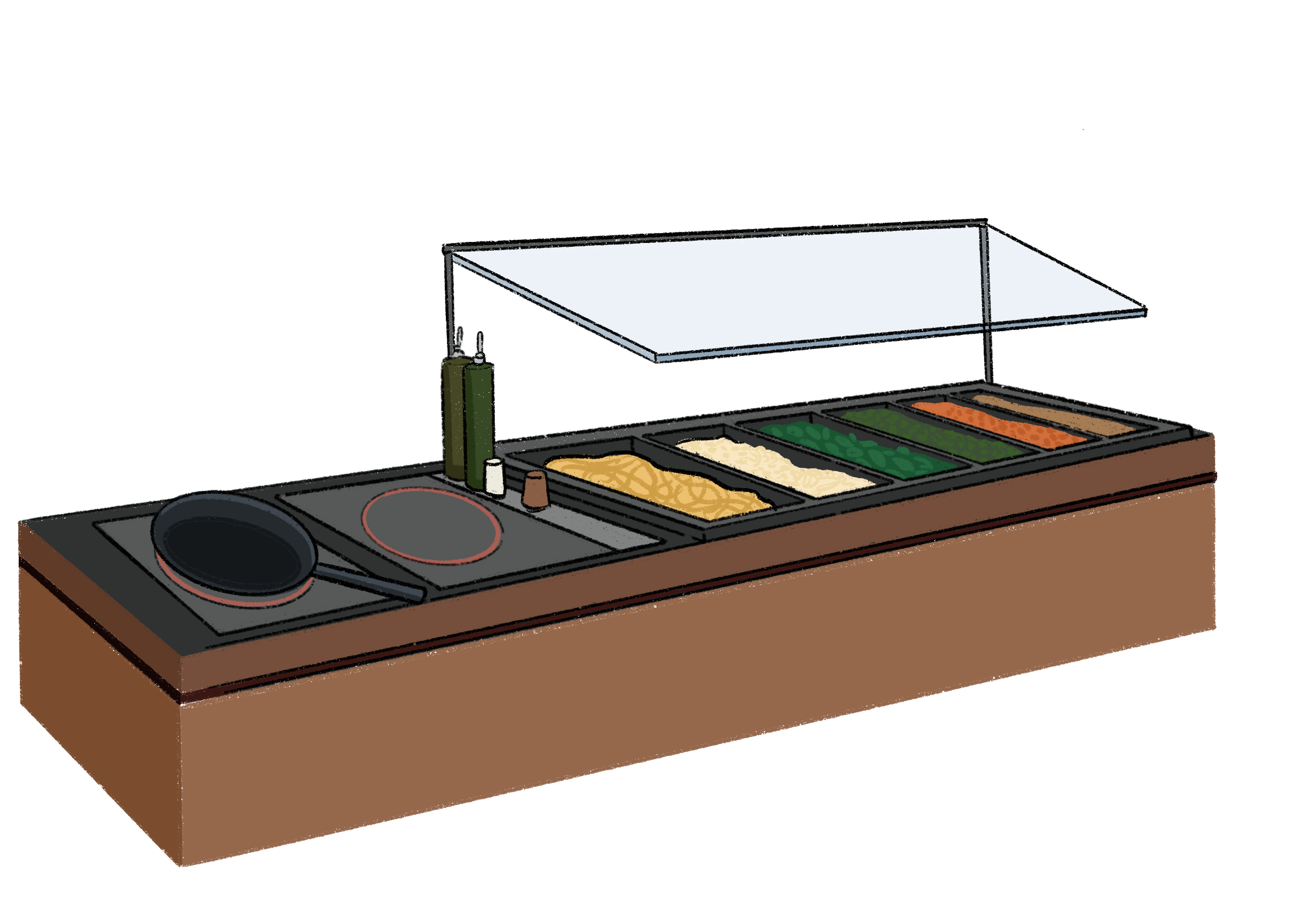Saturday, July 27
Wonderful Wok: The Return of the Wok Bar
Allie McKeon ’24 in News | April 1, 2022

For those who have somehow managed to miss it, the wok bar has returned to the dining halls. The wok bar is a station in the dining halls that allows students to make stir fry or hotpot-style food completely on their own. It offers a wide range of ingredients including noodles, rice, chicken, various vegetables, and a variety of spices, seasonings, and sauces.
The wok bar is a great opportunity for students to explore their own preferred variations of meals, and it leaves room for creativity and experimentation. Additionally, the bar creates an additional option for students who don’t want the main meal being served and provides more variety than the classic salad and sandwich bars. The variation in making your own food is certainly something many students are excited about. “We’re eating the same food every other week…so the wok bar is a new taste. You can do whatever you want and let your creativity flow,” said Frances Hsu ’23. Directly cooking food also gives students an option to customize their meals to something they will enjoy and is particularly useful for students with dietary restrictions.
On the other hand, one issue many students have noted is the early closing hours. Elizabeth Duda ’24 noted that varsity athletes looking to cook a meal after practice often find the wok bar already closed. Additionally, students have found that the line for the wok bar is consistently long and that waiting for open spaces is extremely time-consuming. Waiting in line can often take anywhere up to 30 minutes on top of the time it takes to actually cook the meal, so often the amount of time students take to make their dinner deters them from cooking. Hsu jokingly declared that making food at the wok should take no longer than 10 minutes.
Barbara Odae ’23 added that you should “not be ashamed if it's taking you a little bit of time because it's going to take everyone as much time as they want. What matters most is that you're eating good food.”
A potential solution for the long wait times at the wok bar could be to open another station; however, it might be too difficult for dining hall staff to handle given the fact that it would likely mean even more dishes and pans that would need to be cleaned.
Although the wok bar might have time-consuming lines, it still creates opportunities for students to explore new flavors, develop their skill as chefs, and take control of what they eat. Hsu said, “I love [the wok bar]. It’s my new love. It’s literally the best thing Lawrenceville has done since the omelet bar.” Clearly, the wok bar is definitely one of the best additions that the Irwin Dining Center has made thus far.
Related Articles
- Move Aside Gryffindor: Puffs Takes the Stage Ellen Jordan ’26
- Introducing the 2024-25 Crescent and Circle House Presidents Sienna Soemitro ’26
- Tsai Field House Dedication Dorothy Lee ’26
- Flying Colors: Holi 2024 Shloka Chodhari ’26 and Ethan Zhu ’26
- Kirby Spices Campus Up with Music Festival Angel Xin ’26 and Sienna Soemitro ’26
Recent Articles
- To Edit or Not to Edit Arya Vishwakarma ’25
- Senior Reflection Luke Park ’24
- Senior Reflection Sofia Carlisi ’24
- Reflections on Dance Sonia Singhal ’24
- Field Trips: A Unique Way to Learn Mira Ponnambalam ’26